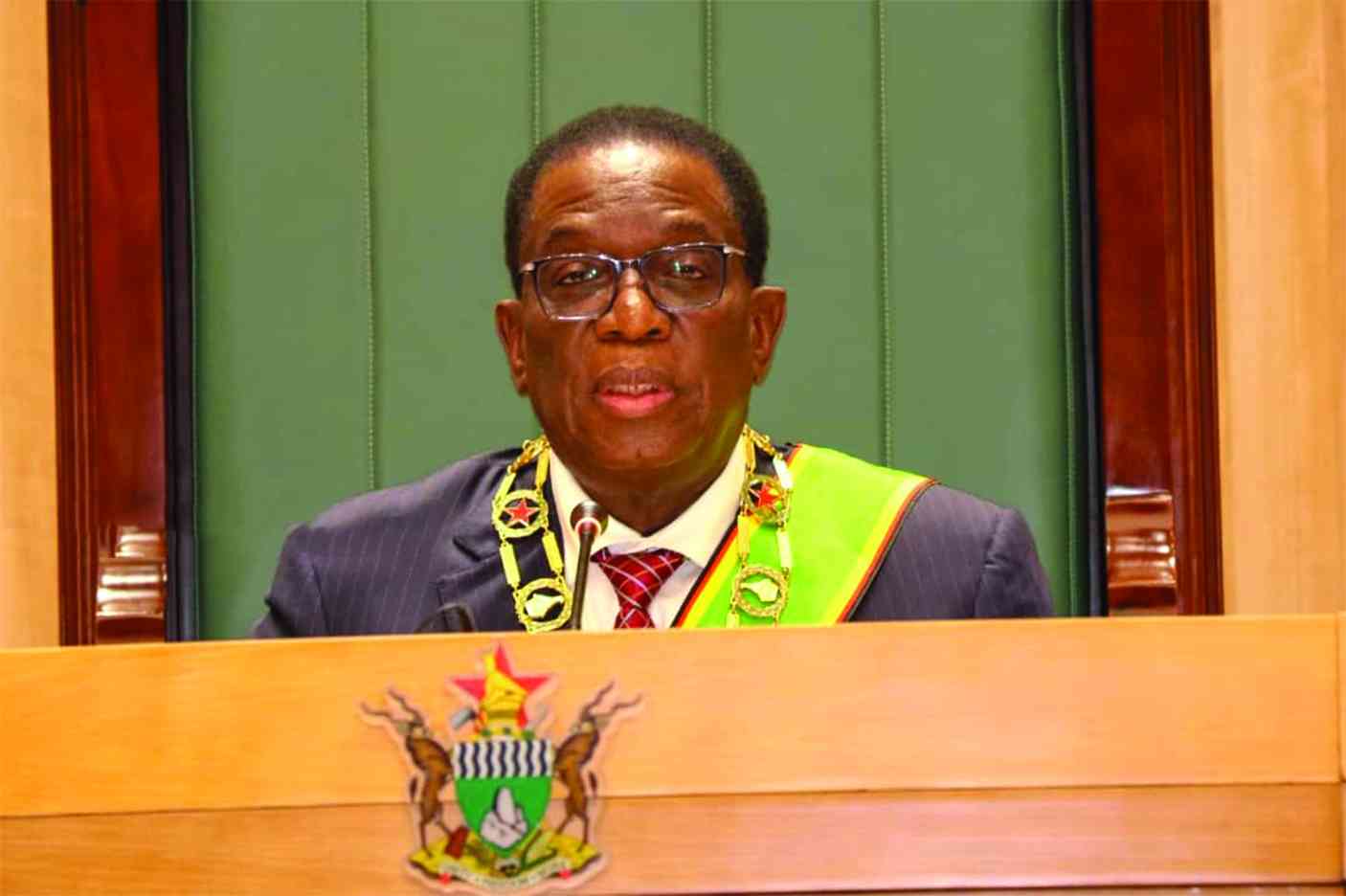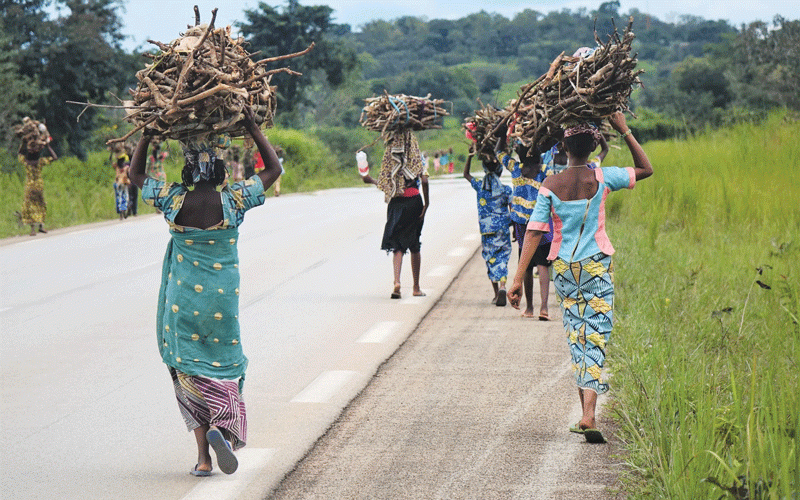
ON October 2 this year, President Emmerson Mnangagwa delivered his State of the Nation Address (Sona) before the Parliament of Zimbabwe.
The speech tackled varying socio-economic issues affecting the country. In addition, Mnangagwa set out the legislative agenda for the 10th Parliament’s Second Session, which runs from October 2024 to September 2025.
He further highlighted that a minimum of 23 pieces of legislation are expected to be debated or passed in parliament, including new Bills and those which lapsed during the First Session and are being carried over into the Second Session of the 10th Parliament.
As Zimbabwe is emerging from another highly disputed election held last year in August, this writer and indeed many electoral stakeholders would have expected government to prioritise a comprehensive overhaul of the country’s electoral laws and architecture.
Excluding such a desired Electoral Amendment Bill into the second year of a five-year electoral cycle indicates little political will to address the enduring history of disputed elections.
A dark history of dodging reforms
The quest for electoral reforms in Zimbabwe has for decades been bedevilled by competing forces. On one hand, we find a robust push from civil society, opposition political parties and other independent electoral stakeholders clamouring for comprehensive electoral reforms and alignment of electoral laws to the 2013 constitution.
On the other hand, there is an equal, if not mightier force which negates the calls for far-reaching electoral reforms. It is important to note that Zimbabwe`s electoral architecture has a firm foundation provided in the country’s constitution.
- Red Cross work remembered
- Take first aid to grassroots, First Lady urges Red Cross
- Musona off to promising start in Saudi Arabia
- Minister Mahendere reveals secret to success
Keep Reading
However, such a solid foundation has not been fully actualised in the enabling electoral legislation as a significant number of provisions in the current Electoral Act fall short of the letter and spirit of the country’s constitution.
Since the promulgation of the country’s new Constitution in May 2013 and following successive general elections starting with the 2013 polls, observer groups and independent analysts have come up with several recommendations encouraging the government and electoral authorities to adopt both legislative, political process and administrative reforms aimed at improving the conduct of elections.
Unfortunately, such calls often received unfavourable attention from the lawmakers. Analysts have attributed this to the absence of political will to reform by the governing party.
This lack of political will reached its height during the entire life cycle of the Ninth Parliament (2018-2023) whereupon for four years government failed to bring forth any amendment to the electoral law.
It was only during the last and final session of the Ninth Parliament that an Electoral Amendment Bill, which was devoid of any of the recommendations from election observers, was introduced and debated in parliament.
As fate would have it, that last-minute Bill failed to sail through the legislature before the onset of an electoral period as prescribed in Section 157(5) of the country’s constitution.
As such the purported changes were not only less relevant, but eventually became inconsequential because changes done after elections dates are announced do not apply for that particular general election.
Any changes?
The more things change, the more they remain the same! As Mnangagwa outlined the 2023-2024 legislative agenda, the long-awaited Electoral Amendment Bill was indeed conspicuous by its absence from the list.
I am aware some analysts may be tempted to think that there is still more time until the next polls. Sadly, such line of thought is misdirected because Zimbabwe subscribes to an electoral cycle approach in which preparations for 2028 polls has already started.
The desired changes to the electoral law have an effect on continuous electoral processes such as the voter registration exercise and updating of the voters’ roll.
The foregoing electoral processes were flagged even by Sadc as problematic areas which require attention. Allowing the Zimbabwe Electoral Commission (Zec) to administer continuous voter registration and related updating of the voters’ roll before addressing the challenges faced ahead of 2023 polls is tragic.
Since May 2013 the electoral reform agenda has received deceptive attention from policymakers. It is unthinkable that 12 years since promulgation of the new (now old) constitution some sections of the electoral law remain inconsistent with the constitution.
Since 2013, we lost opportunities for electoral reforms during two separate five-year electoral cycles, and now into the second year of a third cycle.
An exercise to comprehensively reform the electoral laws and sanitise the current Electoral Act, which has been amended severally to the extent of having inconsistent provisions, requires thorough consultations, collective effort and broad input from all stakeholders.
Leaving that work to happen towards another general election in 2028 plunges us towards another disputed election.
A silver lining! What can be done?
Before the 2023 polls, commendable efforts were done by civil society groups like the Zimbabwe Election Support Network (Zesn) in persuading parliament to prioritise comprehensive overhaul of the Electoral Act.
For example, such effort culminated in an alternative draft Electoral Amendment Bill, which was spearheaded by Zesn. I remember the draft Bill was debated thoroughly by civil society and parliamentarians with the hope of having it adopted by parliament for debate through the conventional legislative process.
Unfortunately, that proposed comprehensive Bill remains hanging. The fact that the Zesn-sponsored Bill remains in place and had initial blessings from parliamentarians provides silver lining and desired hope that at least one stage has been passed.
I am convinced if that Bill is pushed forward expeditiously, it would allow Zimbabweans enough time to look at the proposed changes, make further contributions and allow parliament to exhaust its processes and pass the Bill well before people get busy with preparations for the 2028 polls.
While Zesn took the lead in draft a model or alternative electoral law, pushing for it to be adopted should be a collective effort especially within the civil society sector.
We are at a point where a broad alliance on electoral reforms is required; it is only through a collective voice and collective action that lawmakers may take seriously the demand for comprehensive electoral reforms.
Another silver lining arises from the fact that we have legislators in Parliament from two different political parties. This article agrees with the view that the lethargic pace of electoral reforms is caused by a deep-seated dislike of political reforms from certain forces within the governing Zanu PF party.
If that remains the case, then it becomes a political problem which may require a political solution to address. The presence of Citizens Coalition for Change (CCC) legislators in parliament may assist in the quest for persuading the ruling party to accede to the demand for reforms.
Firstly, the opposition outfit is on record complaining about electoral vulnerabilities observed around the 2023 polls, from the controversial delimitation exercise, voter registration, problematic voters’ roll, voter suppression, the fiasco around election dispute litigation, chaotic nomination process to evident maladministration by the electoral commission, our legislators have compelling reasons to prioritise electoral reforms.
Secondly, being in parliament gives them an opportunity to make peer influence amongst fellow legislators and encourage each other to prioritise electoral reforms.
While the executive arm of government may be less keen in pushing through an electoral amendment Bill, individual legislators have legally permissible pathways to sponsor some Bills in parliament. N
otably, this option has not been tried successfully, it, however, remains an option for a multi-pronged push for electoral reforms. Most importantly, it is now time political parties in parliament fashion their own strategies to push for reforms, which are less reliant on civil society.
Separate pressure from political parties is necessary to complement the work being done by civil society. Of late, opposition political parties have demonstrated little action around electoral reforms which weakens the broader call for a comprehensive overhaul of the electoral architecture.
Zec is on record saying it submitted a raft of proposed reforms to the Ministry of Justice, Legal and Parliamentary Affairs recommending changes to various aspects, including registration of political parties and handling of electoral litigation cases amongst others.
This gives another opportunity for applying pressure for the government to consider early changes to the electoral laws. The electoral commission has been consistent with the fact that their role is to administer what is provided for in the law and has encouraged electoral actors, especially parliamentarians to make necessary changes to law.
Strategic engagement between civil society and the electoral commission may provide another silver lining for a broad-based approach to electoral reforms.
Conclusion
Elections have been at the epicentre of Zimbabwe’s excessive levels of polarisation, lack of shared vision and unending conflicts in society. Addressing electoral fragilities raised by electoral stakeholders becomes a top priority ahead of the 2028 polls.
Time to make necessary changes to the electoral laws is now, the nation cannot afford another delay which has the likelihood to shepherd us into another election without reforms, which inevitably will usher in another wave of disputes and disunity.
Zaba is a political scientist and executive director at Democracy Point Zimbabwe. — [email protected]











